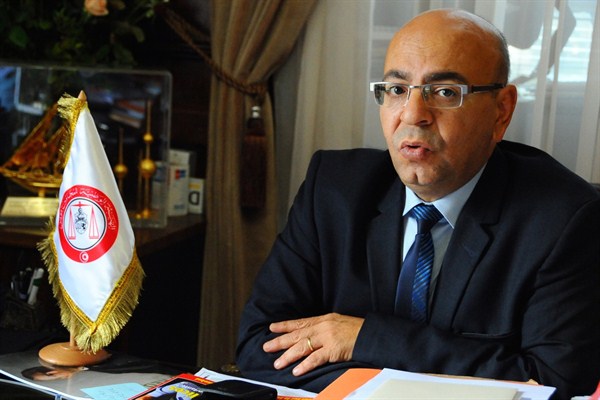Tunisia has received more media coverage than usual this week, after the National Dialogue Quartet was awarded the Nobel Peace Prize “for its decisive contribution to the building of a pluralistic democracy in Tunisia in the wake of the Jasmine Revolution of 2011.” The award confounded observers; bets were on Germany’s Angela Merkel or Pope Francis. That’s because, with the exception of Tunisia’s closest followers, few had actually heard of the Quartet—which comprised a labor union, an employers' organization,* a human rights group and a lawyers' association—or understood its role in advancing Tunisia’s democratic transition.
The Quartet, which was spearheaded by the influential Tunisian General Labor Union, known by its French acronym, the UGTT, officially began its work in August 2013, two years after Tunisia elected its National Constituent Assembly (NCA), the body tasked with drafting a new constitution. It emerged at a time when mounting tensions between Ennahda, the Islamist party that held a plurality of seats in the assembly, and the opposition led to the emergence of an initiative known as the National Dialogue, aimed at easing partisan gridlock.
In the two years after longtime strongman Zine El Abidine Ben Ali fell to popular protests in 2011, the North African country had been praised as a model for democratic transitions, as similar uprisings in neighboring Libya and Egypt precipitated chaos. But the events in 2013 challenged that label. In February, liberal politician Chokri Belaid, a longtime human rights advocate and a vocal critic of Ennahda, was assassinated outside his home in Tunis. Just five months later, in July, with the constitution’s already extended two-year mandate rapidly approaching, Tunisia witnessed its second political assassination with the murder of another prominent liberal politician, opposition leader Mohammed Brahmi.

